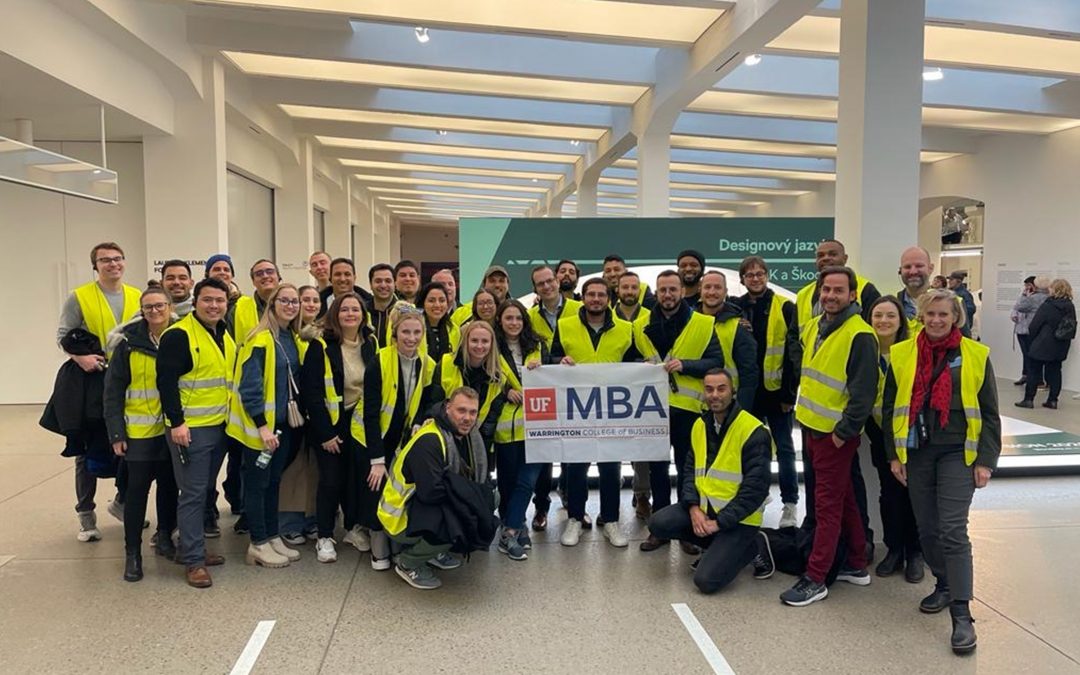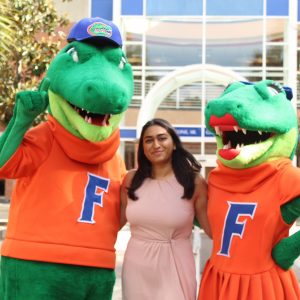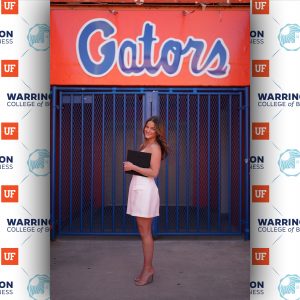University of Florida MBA students learn importance of cultural insights while consulting with Prague businesses
Communism has left its mark on business in Prague.
That’s what a cohort of MBA students from the University of Florida Warrington College of Business discovered on a Global Immersion Experience trip to the Czech Republic in November. The week-long trip is part of the MBA program, giving students the opportunity to gain a global perspective on business by consulting in a foreign country.
Business in the United States isn’t the same as it is abroad. To prepare for their travels, the MBA students held virtual meetings with the businesses they were to consult in Prague. Between calls, they researched relevant industries, reviewed data provided by their clients to assess ongoing issues and constructed presentations on potential solutions. But with all their preparation, it wasn’t until their arrival that they learned how a country’s culture and history fundamentally impacts their operations.
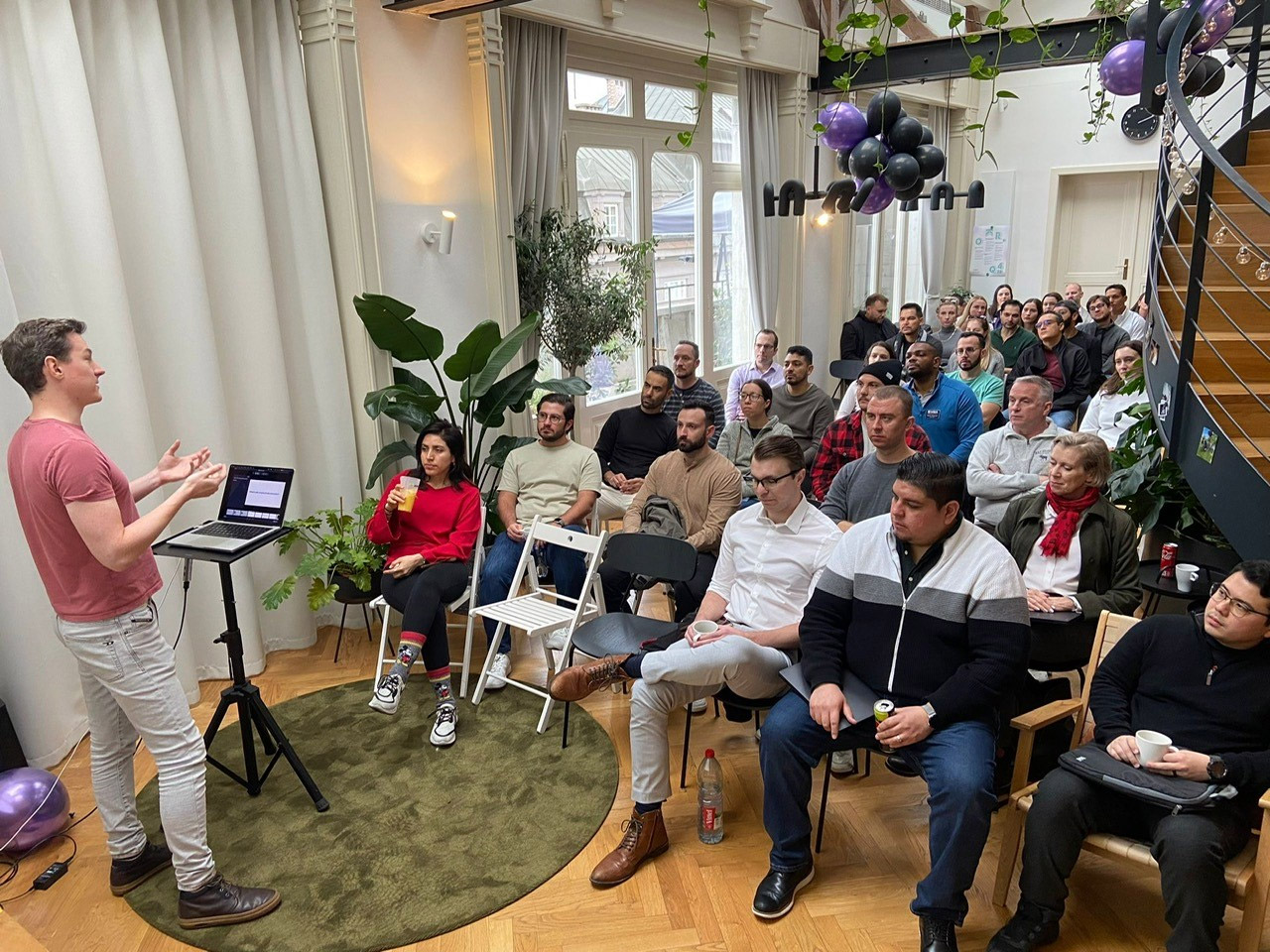
UF MBA students hear from an entrepreneur in Prague.
“During our first learning experience [in Prague], the speaker, Jana Vodickova, did an excellent job of sharing her personal story connected to communism,” said Isabella Luque (MBA ’24) in her reflections of the trip. “She shared that it is normal for Czechs to have a more private personality; they are not used to interacting with strangers, engaging with neighbors or keeping large social circles. [She] attributed this to a time when individuals could not trust if their neighbor was part of the secret police or would share personal information with the communist party.”
This habitual privacy was demonstrated in their in-person meetings with clients, Luque said, wherein clients dove immediately into business matters, forgoing small talk and keeping presentations strictly professional.
“Communism did not end in Czechia until 1989, so there is still a living generation of adults who suffered the communist era and were shaped by that ruling most of their lives,” Luque continued. “Therefore, the social impact of communism in eastern Europeans’ daily lives is still very latent and noticeable.”
Far from being cowed by past political traumas, the business scene in Prague is alive with ambition to aid their country’s growth. Throughout the week, the MBA students visited companies in addition to their clients, witnessing levels of innovation that surpass many companies in the United States. One of the companies they visited was a car factory, where concepts from classes at Warrington were brought to life.
“Stepping into a car factory for the first time in my life was a remarkable experience,” exclaimed Bernardo Rodriguez (MBA ’24). “This presented a valuable opportunity to witness firsthand various concepts acquired in [our] operations management class, encompassing aspects like process design, raw materials management, work in progress, product volume and line flows, among other topics.”
Another company visited was Pink Crocodile, a non-profit organization that addresses the needs of severely disabled children. Some of the students were assigned to work with the organization and helped plan the introduction of a newly developed, multi-purpose wheelchair into the US market.
Judy A. Warrington Professor in Business Janice Carrillo served as the faculty advisor for the trip, guiding students through their projects before, during and after they met with their clients. She met virtually with the companies ahead of time and then matched students to different projects based on their professional trajectories.
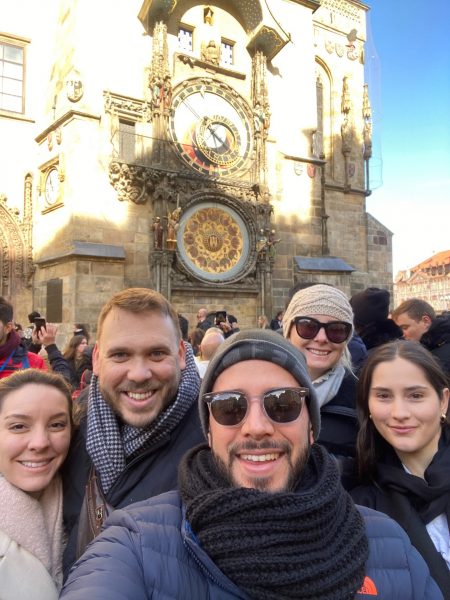
Prague is home to one of the world’s oldest astronomical clocks.
“Before we travel, I tell the students that they should view this experience as a mini-consulting project,” Carrillo explained. “While these are working professionals who all have current jobs, I tell them to keep in mind that they can use this mini-consulting experience as an opportunity to gain experience in a particular domain that they may want to explore in the future in terms of career and personal goals.”
When they weren’t working on projects for their clients, the students toured Prague, visiting castles and the city’s astronomical clock, which was originally installed in 1410, making it the third-oldest of its kind in the world.
All around, the experience proved eye-opening for the cohort, teaching them the importance of understanding the historical background of a culture to serve its businesses well.
“This trip allowed me to see, in real time, several concepts that I have learned from the MBA program,” Rodriguez shared. “Additionally, it gave me the chance to interact with a client and learn more about their company and business challenges. Overall, it was a great instance for expanding business knowledge and fostering memorable moments with the MBA cohort.”


